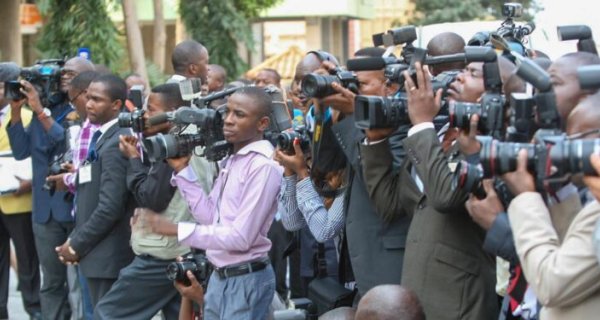The President of the National Assembly, Fernando da Piedade Dias dos Santos, considered the discussion on "The Role of the Media in the Construction of the Democratic Rule of Law", requested by the parliamentary group of the National Union for the Total Independence of Angola (UNITA), in the period before the agenda, "a sensitive exercise", which should be done "with an open spirit".
According to Fernando da Piedade Dias dos Santos, coinciding and discordant positions were registered, and despite the moments in which the tone was raised, however, "discipline and urbanity" was always maintained.
"We can consider that it was a positive and constructive debate," said the president of the National Assembly, stressing that the media "plays a great role in the consolidation and strengthening of the democratic state and the rule of law," but it is necessary that they work according to the law and the regulations in force.
"Whenever situations of disrespect for the rights of citizens and institutions arise we must make use of the instruments that the law has made available to us to settle differences. We must not take preconceived or extreme positions," he said.
The leader of the UNITA parliamentary bench, Liberty Chiaka, defended, in his speech, that the debate intended to contribute to the consolidation of the democratic rule of law, promote the fulfillment of constitutional obligations by the media and journalists, ensure the existence of a media service that promotes unity in diversity and guarantees the principles and values of freedom, equal treatment, plural information, human dignity and respect for differences, tolerance, decency and observance of the adversarial principle.
Liberty Chiaka stressed that the objective is that the media contributes to a democratic environment, of freedom and fair political competition and respect for the differences of political opponents.
In her intervention, the deputy of the Popular Movement for the Liberation of Angola (MPLA), Luísa Damião, welcomed the initiative of the debate that, for the party of which she is vice president, is part of the vision and commitment to continue to deepen the plural dialogue in a constructive and responsible way, to think beyond the egos and interests of political parties in the citizen and the strengthening of the democratic rule of law, in full citizenship and focusing on the free manifestation of thought.
Luísa Damião stressed the need for the media to also serve as a means of education, criticizing a work in which "lies are promoted, gratuitous insults and information is manipulated", behaviors that do not promote national reconciliation and the construction of the democratic rule of law.
Lucas Ngonda, a member of the National Front for the Liberation of Angola (FNLA) regretted that the discussion had taken place before the agenda, arguing that "it should really be a debate, because this is a very important issue.
Lucas Ngonda recalled that in Angola's recent history that the media produced results that led to a long civil war.
"We should think about that, the Angolan civil war started with the media, with programs that I don't want to name, because this is not the time to dig these things up, that's where it all started," he said.
UNITA deputy Miraldina Jamba, considered that freedom of the press is closely linked to freedom of expression, "because it is through this right that various opinions and ideologies can be expressed and discussed for the formation of thought.
"In Angola, the media have faced immense difficulties in performing their functions. In a consultation with the Union of Journalists we obtained the following concerns: the issue of editorial freedom of the public media. There is no freedom, insofar as it is the President of the Republic who appoints the managers of the public organs (...), in view of this it is not expected that the organs respect what is established in the Constitution of the Republic of Angola," he stressed.
In turn, the deputy Benedito Daniel, of the Social Renewal Party (PRS), stressed the educational role of the media, especially with regard to strengthening democracy and building a free society.
Benedito Daniel lamented that in Angola "a mentality of fear was created", with the censorship of the journalists' work or the creation of self-censorship conditions.
The independent deputy David Mendes stressed that there is only a free journalism if there are free journalists, noting that the media cannot have journalists who use the means at their disposal to "denigrate, offend, lead the population to have a judgment of suspicion about people, under the argument of freedom of expression.
On the other hand, he indicated the need to review the conflict that exists to this day of the freedom of journalists in covering demonstrations, with regular cases of arrests of these professionals, suggesting that the competent bodies impose the obligation for journalists to wear identification vests.
Alexandre Sebastião, of the Broad Convergence for the Salvation of Angola - Electoral Coalition (CASA-CE), said that the Angolan media "falls far short of the required impartiality and is hostage to a certain partisan will.
Earlier this week, the government announced the suspension of the broadcast of TV Record Africa and the channels ZAP VIVA and Vida TV for "legal inconsistencies", in addition to newspapers, magazines, radios and 'sites' without effective activity in the last two years.







